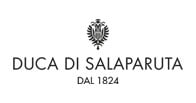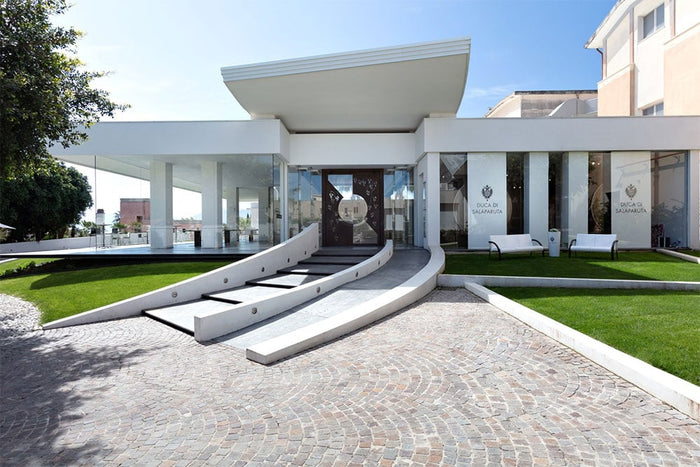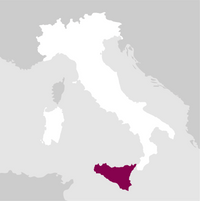Description
From the best bunches of Insolia grapes, from rigorously selected vineyards in the hills, comes a white wine with unique qualities of delicacy and aromatic intensity.

Perfume

Color

Taste
Serve at:
08 - 10 °C.
Longevity:
03 - 05 years

- Start up year: 1824
- Oenologist: Team di tecnici
- Bottles produced: 9.500.000
- Hectares: 150
In this part of the island for centuries the Nero d'Avola, the prince of the Sicilian vines, which in the area of Riesi, thanks to special conditions pedoclimatic, has found an ideal habitat.
The vineyards, currently about 127 hectares, are located on soils with a composition of silicaocalcarea that allows the roots to penetrate deeply finding water, rare and precious in this part of Sicily in summer.
Here are born some of the great Duca di Salaparuta wines, each with its own personality. different thanks to the fact that the grapes from which they are born are harvested in different areas. of the estate. the particular exposure to the sun and wind of the vineyards and the nature characteristic of the various areas of the soil, in fact, guarantee different fruits to a few yards apart.
Duca Entico 2017 received a special award as Best Wine from Nero d'Avola grapes from Doctor Wine - Essential Guide to the Wines of Italy 2022 with 96 points out of 100. Read more


| Name | Duca Salaparuta Colomba Platino Inzolia 2022 |
|---|---|
| Type | White green still |
| Denomination | Sicilia DOC |
| Vintage | 2022 |
| Size | 0,75 l |
| Alcohol content | 12.0% by volume |
| Grape varieties | 100% Ansonica/Inzolia |
| Country | Italy |
| Region | Sicily |
| Vendor | Duca di Salaparuta |
| Origin | South-west Sicily, inland of Towns of Ribera and Cattolica (Agrigento). |
| Climate | Mild winters with very dry springs and summers. |
| Soil composition | Mixed composition tending to limestone and sandy. |
| Cultivation system | Espalier. |
| Plants per hectare | 4,000 plants per hectare. |
| Yield per hectare | 5,000-6,000 kg/hectare. |
| Fermentation temperature | 16 7 °C |
| Fermentation | About 15 days. |
| Wine making | Very soft pressing of the grapes and use of the first must only. Slow fermentation at 16 7°C for about 15 days followed by long contact with the yeasts. |
| Aging | Temperature-controlled maturation until spring to promote natural clarification. At least 2 months in the bottle at a controlled temperature. |
| Allergens | Contains sulphites |





